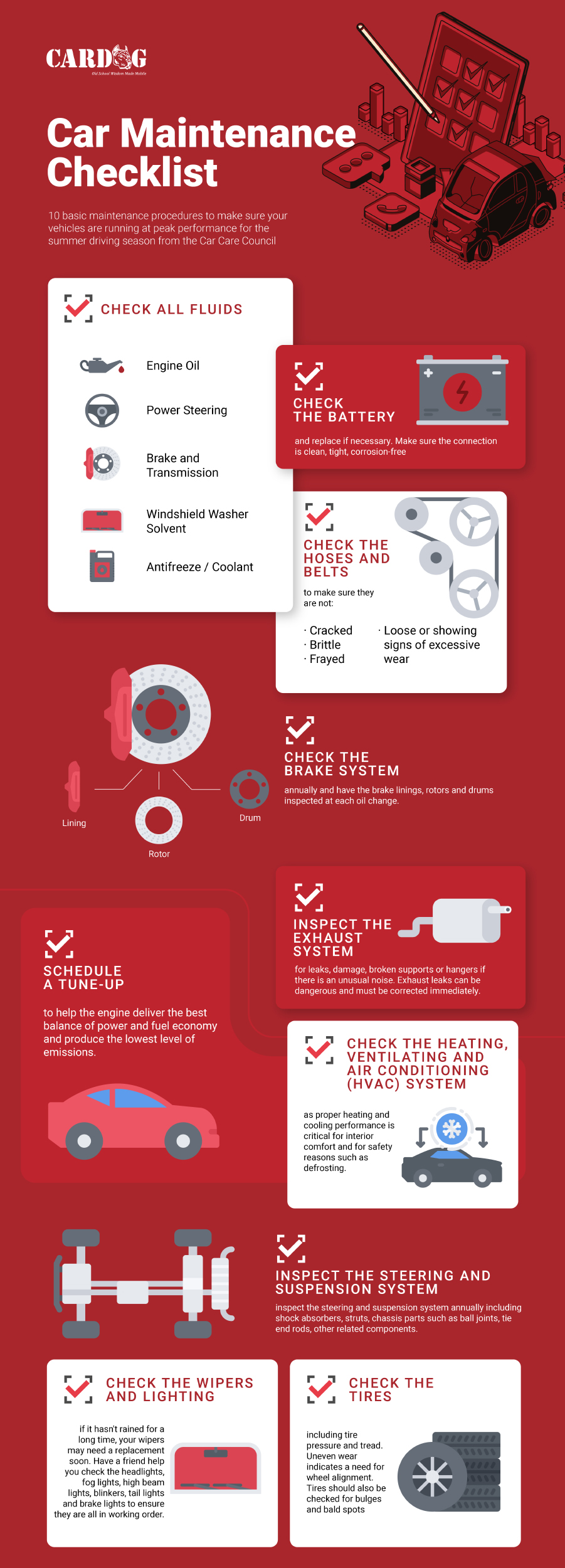“Dammit, Jim; I’m a doctor, not an engineer!” For many of us, that’s how we feel when confronted with questions about car maintenance. It can be frustrating, but it’s not a good reason to ignore these simple things that need to be checked on a regular basis to keep your car running smoothly and efficiently. That’s why we’ve created this simple checklist to help you know what to check — or if you’re like many of us (and Doctor McCoy), you’ll at least know what your service person is checking when you take your car in.
The battery is something that it never hurts to check. Corrosion can build up on and around the posts and prevent good contact between the battery and the battery cables. This is a common cause of a vehicle not starting and is easy to prevent by keeping the battery posts clean and the cable connections tight. Modern sealed batteries don’t need their fluid levels checked like old-style batteries, so this usually isn’t something you have to worry about.
Fluids that you do need to worry about include:
- The engine oil
- The power steering
- The brakes
- The transmission
- The antifreeze (coolant) in the radiator
Insufficient levels of fluids in any of these systems can cause catastrophic problems for your vehicle. While it’s not difficult to learn how to check them yourself, it is vitally important that you only fill each reservoir or system with the right fluid for that system. Make sure to check your owner’s manual for the correct fluid, because you don’t want to be the person your mechanic tells amusing stories about “this guy who put antifreeze in the engine oil”. It has happened, and the guy paid his mechanic to rebuild his transmission.
Window washer fluid also needs to be checked, and this is simple enough that almost anyone can do it properly. And, in a pinch, plain water can be used in place of washer fluid.
The rest of the checklist is usually best left to the professionals unless you’re confident of your skills. All belts and hoses need to be inspected for signs of cracking, wear, or loosening. The brakes should be checked and adjusted or replaced as needed. An annual brake inspection of the entire braking system should be done. The A/C and heating system should be checked annually as well, more often if it’s not working properly. The steering and suspension system is another inspect yearly item, even if no problems are apparent during normal driving. Finally, inspecting the tires regularly —and keeping them properly inflated— needs to be done frequently.
Even if your mechanical aptitude begins and ends at going to the service station, making sure your vehicle is regularly maintained will help keep operating costs low, prevent catastrophic breakdowns and keep it running for years to come.



